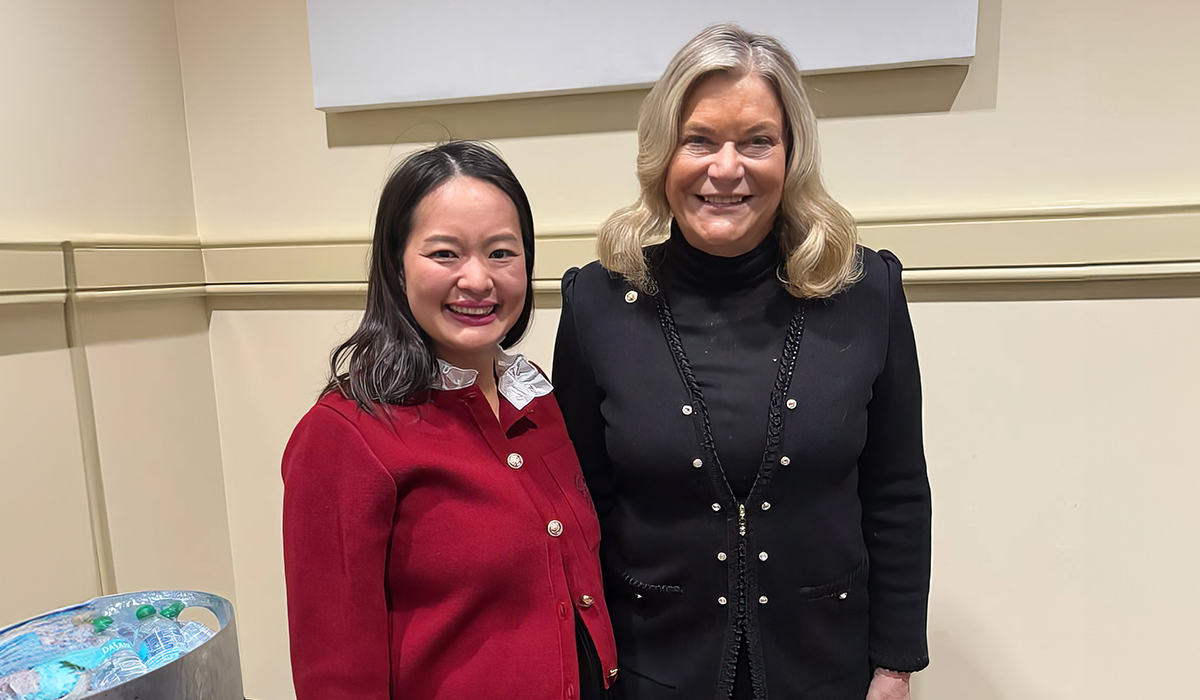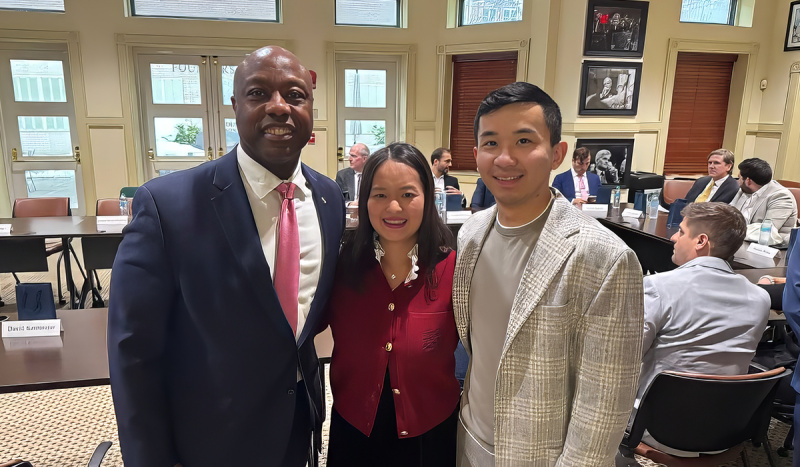
Washington, D.C., February 18th, 2025,
Chainwire
Singularity Finance CEO Cloris Chen participated in a pivotal
U.S. Senate roundtable alongside key senators and industry leaders
to discuss the future of cryptocurrency regulation, taxation on
digital assets, and AI-driven financial innovation. The discussion,
joined by Senators Tim Scott, Cynthia Lummis, Bernie Moreno, Bill Hagerty, and Marsha Blackburn, provided
key updates on legislative progress and explored solutions to make
the U.S. more crypto-friendly.
The event was hosted by Senator Marsha Blackburn and Andrew
Gordon, an attorney and Certified Public Accountant with
extensive experience in cryptocurrency taxation and regulatory
compliance. As part of his keynote, Gordon underscored the urgent
need for taxation reform, stating: "For too long, the federal
government has had its foot on the neck of the crypto industry.
I’ve spent years helping individuals and businesses navigate the
tax system, only to see innovation pushed offshore due to unclear
and restrictive policies. This is not how it should be. Crypto is
not just Wall Street—it starts with Main Street, with the builders,
developers, and entrepreneurs who are laying the foundation for the
future economy. We have a real opportunity to make change, and we
must do our part—educate, vote, and advocate for policies that
allow innovation to thrive in America."
Legislative Progress
Senators shared significant updates on upcoming legislation
impacting the crypto industry. Senator Tim Scott announced that a
stablecoin bill, along with a broader market structure framework,
is expected to pass within the next 100 days. This legislation aims
to provide much-needed regulatory clarity for the industry.

Senator Cynthia Lummis detailed key tax reforms, stating that
the proposed legislation will ensure that mining and staking
rewards are not taxed until they are sold. Additionally, the
legislation seeks to repeal the unworkable broker rule and
introduce a $600 de minimis exemption for crypto transactions,
simplifying compliance for everyday users.
Lummis also discussed the market structure bill, which is based
on the Lummis-Gillibrand framework. The bill aims to reduce
regulatory ambiguity and provide clear guidelines for the industry.
It refines the Howey test to ensure that assets classified as
commodities or securities maintain their status without arbitrary
reclassification.
Cloris Chen on AI, Tokenisation, and Regulatory
Barriers
Cloris Chen, CEO of Singularity Finance, highlighted the
challenges of tokenised real-world assets (RWA) faced under current
U.S. regulations. She emphasised the need for a clearer framework
to integrate tokenised RWAs into the financial system without
excessive compliance burdens.
“The U.S. needs to have a clearer framework on the security
definition and establish a streamlined process to remain
competitive. Our tokenised AI assets and Treasury bills cannot be
offered to U.S. investors because they risk being classified as
securities, which would require SEC registration. Given the
complexity and unclear regulations, this process is both lengthy
and expensive, making it economically unfeasible to serve U.S.
investors. This isn’t just about one company—it’s about ensuring
the U.S. doesn’t fall behind in the global shift toward tokenised
and AI-enhanced finance.”
About Singularity Finance
Singularity Finance is the first AI-centric EVM-compatible L2
blockchain bringing the AI economy on-chain. It offers a fully
compliant RWA tokenisation framework to tokenise and monetise the
AI value chain in its entirety. Stemming from the SingularityNET
ecosystem and closely tied to the Artificial Superintelligence
Alliance, Singularity Finance is poised to become the financial
chain for everything AI.
Website: https://www.singularityfinance.ai/
Contact
Market
Across
pr@marketacross.com